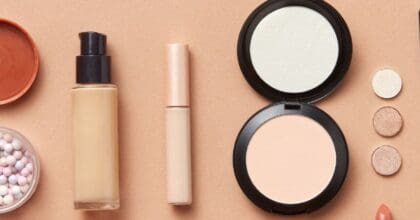It's all a blur – one in five Brits can't see the benefit of eye examinations
While the doctors, dentists and even the hairdressers are regular dates in the nation’s calendar, it seems there is one appointment that many Brits are failing to see the importance of. New research from Mintel reveals that as many as one in five (19%) of us rarely or never has an eye examination and less than half (47%) the nation have had their eyes tested in the last 12 months.
Meanwhile, one in ten (9%) Brits has never had their eyes tested and a further 10% have not visited the optician for five years. And although four in ten (39%) adults admit that having a regular eye examination is important, only a third (36%) of consumers understand that an eye test is about eye health as well as getting a prescription for glasses.
Jane Westgarth, Senior Analyst at Mintel said:
” it seems that eye examinations are not fully understood. As well as testing eyesight, an eye test is also a health check, examining the condition of the eyes and also of general health. Even if people do not need glasses, they should be going for regular eye examinations, yet one in five adults rarely or never has eye tests. This means that some damaging eye conditions could go undetected until it’s too late for treatment. “
The market for optical goods has been growing steadily, with this growth only interrupted by the severe economic downturn that began in Autumn 2008. In 2009, consumer spending on optical goods was £2.65 billion, 17% higher than in 2004 (£2.25 billion). Optical goods, especially glasses, are a discretionary purchase and the recession has dented demand, indeed, total market spending in 2009 fell by 2% compared with the previous year (£2.7 billion).
Glasses account for as much as two thirds (63%) of the optical goods market, while contact lenses account for 19%. Meanwhile, eye examinations (14%), contact lens solutions (3%) and other eyecare products (1%) make up the remainder of the market.
Today, just three in ten Brits claim not to need or use some kind of vision correction. More than six in ten adults now wears spectacles (32 million), an increase of 2 million since 2004. Alongside increased numbers of spectacle wearers, the number of contact lens wearers has grown by half a million in the same 5-year period to reach 4 million.
In terms of the optical goods market as a whole, modest growth will return in 2010 as consumer confidence improves with sales forecast to grow by 19% in the five years to reach approaching £3.2 billion in 2014.
” even though many people feel their eyesight is precious, the optical goods market has not been recession-proof. In 2009 demand fell as consumers delayed the time between eye examinations and made their existing glasses last longer. There was also a tendency for customers to take their prescriptions and shop around for a better deal, particularly for glasses. This has favoured the mass-market retailers but was bad for higher-end businesses and suppliers of premium products. “Jane concludes.
Despite the growth in consumers needing optical goods, the market for laser eyesight correction continues to develop and has become a small, but significant alternative to glasses or contact lenses. Indeed, sales of laser surgery have grown a massive 79% in the past 5 years. Last year 105,000 eyes were treated and the market was worth £168 million, the average spend per eye is estimated to be between £1,500 and £1,600.
About 2% of adults who need eyesight correction in the UK have already had treatment and the image of laser surgery is improving. Exclusive research finds as many as 8% of those who wear glasses or contact lenses would consider this procedure.
-
Mintel StoreGet smart fast with our exclusive market research reports, delivering the latest data, innovation, trends and strategic recommendations....View reports
-
Mintel LeapMintel Leap is a revolutionary new AI-powered platform that will transform your research process....Book a demo







































